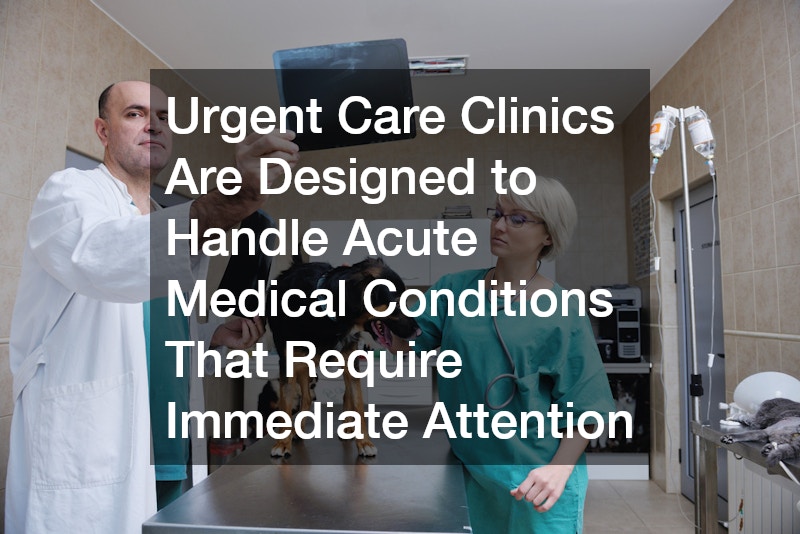
Visiting an urgent care pet clinic can be a daunting experience for both pets and their owners. Understanding what to expect can help alleviate some of the anxiety. This article will cover the essential aspects of visiting an urgent care pet clinic, addressing the most frequently asked questions to help you and your pet have a smoother experience. Choosing the right urgent care pet clinic is important.
What are the signs that my pet needs urgent care?
Recognizing Physical Symptoms
Recognizing the physical symptoms that indicate a need for urgent care is crucial for pet owners. Symptoms such as difficulty breathing, persistent vomiting, or lethargy may warrant immediate attention. Quick action can prevent further complications and ensure your pet receives the necessary treatment in time.
Behavioral Changes to Watch For
Behavioral changes in pets can be indicative of health issues requiring urgent care. A once sociable pet becoming withdrawn or aggressive could be suffering from pain or discomfort. Noticing these changes early on can lead to prompt medical care and better outcomes. Changes in eating and drinking habits, such as refusing food or water, can point to serious health problems. Similarly, pets displaying increased vocalizations or unusual hiding behavior could be experiencing stress or illness.
When to Consult with Your Regular Vet vs. Urgent Care
Deciding whether to consult your regular veterinarian or an urgent care pet clinic can be challenging. Regular vets are ideal for routine checkups, vaccinations, and chronic conditions, while urgent care facilities are better suited for sudden, unexpected health issues. Understanding the distinction ensures your pet receives the most appropriate care. In cases of life-threatening emergencies, such as severe injuries or continuous seizures, urgent care clinics offer immediate access to medical attention. They have specialized staff and diagnostic tools to handle complex situations efficiently. This is why choosing the right urgent care pet clinic matters.
How should I prepare for the visit?
Gathering Essential Information and Documents
Preparation is key to ensuring a successful visit to an urgent care pet clinic. Gathering all necessary information and documents, such as your pet’s medical history, vaccination records, and a list of current medications, can save valuable time during the appointment. Having these documents readily available allows the veterinary team to quickly assess your pet’s needs. Owners should also be prepared to describe the symptoms or changes they’ve observed in their pet’s behavior or physical condition.
Preparing Your Pet for the Visit
Getting your pet ready for a visit to an urgent care clinic involves more than just packing a bag. Ensuring your pet is comfortable during transport and familiar with their carrier can reduce stress. Acclimating them to the carrier at home with treats and calm reinforcement is a helpful strategy. Packing some of your pet’s favorite items, like a toy or blanket, can provide comfort in an unfamiliar environment. It can also help to feed them their last meal a few hours before the visit to avoid any digestive discomfort.
Knowing What Questions to Ask the Veterinarian
Asking the right questions during your visit can lead to more informed decisions about your pet’s health. Inquiring about the possible causes of their symptoms and suggested diagnostic tests can clarify treatment options. Understanding the urgency and implications of potential outcomes enables better decision-making. Don’t hesitate to ask about any prescribed treatment plans or medications. Understanding the purpose, duration, and method of administration can ensure proper adherence to the vet’s recommendations.
What should I expect during the examination?
Initial Health Assessment Procedures
When you arrive at the urgent care pet clinic, the initial health assessment begins promptly. The veterinary team will conduct a thorough physical examination, looking for any signs of distress or abnormality. Expect them to check vital signs, including heart rate, temperature, and respiration rate, as a part of this essential evaluation. The veterinary team may also review your pet’s medical history to understand any pre-existing conditions or recent vaccinations. This comprehensive overview ensures a complete understanding of your pet’s health background.
Common Diagnostic Tests
Depending on the initial findings, the vet might recommend several diagnostic tests to gather more information. Common tests could include blood work, X-rays, or ultrasounds, designed to pinpoint internal issues and provide a clearer picture of your pet’s health. These tests are crucial for devising an appropriate treatment plan. Blood tests can reveal indicators of infections, organ function, or metabolic imbalances, aiding in accurate diagnoses. Imaging tests like X-rays provide visual insights into potential bone fractures, tumors, or other structural concerns.
What treatments may be administered?
Emergency Medical Interventions
In urgent situations, immediate medical interventions can be critical to stabilize a pet’s condition. Treatments may range from oxygen therapy for respiratory distress to intravenous fluids for dehydration or shock. These interventions are designed to address life-threatening situations swiftly and effectively. The clinic staff is trained to handle acute conditions such as seizures, which might involve specialized medications or continuous monitoring. When necessary, surgical intervention may be performed to address serious injuries or internal complications.
Medications and Follow-up Care
Medications are often part of the treatment plan following an urgent care visit. Whether prescribed for pain management, infection control, or chronic disease treatment, adherence to the medication regime is crucial. Pet owners should understand how and when to administer these medications effectively. The veterinarian will typically provide detailed instructions on how to administer medications and potential side effects to monitor. It’s important to clarify any doubts about dosage and duration to ensure compliance.
How does urgent care differ from regular veterinary visits?
Understanding the Scope of Services
Urgent care clinics are designed to handle acute medical conditions that require immediate attention, differentiating them from regular veterinary visits. These clinics are equipped to provide rapid diagnosis and treatment for emergencies, such as severe injuries or sudden illnesses. This focus on urgent cases means they might not offer routine wellness services or long-term care. The specialized services provided by urgent care clinics often include advanced diagnostic equipment and access to emergency surgical procedures.
.
